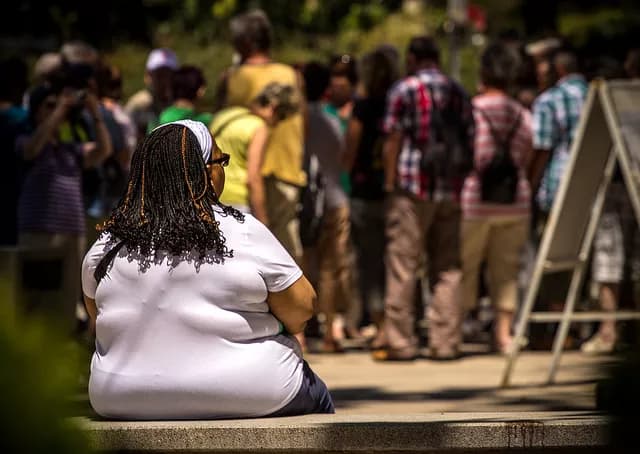
Where Body Fat Is Carried Can Predict Cancer Risk
Scientists have found that carrying fat around your middle could be as good an indicator of cancer risk as body mass index (BMI), according to research published in the British Journal of Cancer.
It shows that adding about 11cm to the waistline increased the risk of obesity related cancers by 13 per cent.
For bowel cancer, adding around 8 cm to the hips is linked to an increased risk of 15 per cent.
Carrying excess body fat can change the levels of sex hormones, such as oestrogen and testosterone, can cause levels of insulin to rise, and lead to inflammation, all of which are factors that have been associated with increased cancer risk.
This is the first study comparing adult body measurements in such a standardized way for obesity-related cancers.
Using a novel approach, scientists at the International Agency for Research on Cancer (IARC-WHO) showed that three different measurements of body size, BMI, waist circumference, and waist to hip ratio all predicted similar obesity-related cancer risk in older adults.
The study combined data from around 43,000 participants who had been followed for an average of 12 years and more than 1,600 people were diagnosed with an obesity-related cancer.
Dr Heinz Freisling, lead study author and scientist at the International Agency for Research on Cancer (IARC-WHO), said: "Our findings show that both BMI and where body fat is carried on the body can be good indicators of obesity-related cancer risk. Specifically, fat carried around the waist may be important for certain cancers, but requires further investigation."
"To better reflect the underlying biology at play, we think it's important to study more than just BMI when looking at cancer risk. And our research adds further understanding to how people's body shape could increase their risk."
Being overweight or obese is the single biggest preventable cause of cancer after smoking and is linked to 13 types of cancer including bowel, breast, and pancreatic.
Dr Julie Sharp, Cancer Research UK's head of health information, said: "This study further highlights that however you measure it being overweight or obese can increase the risk of developing certain cancers, including breast and bowel.
"It's important that people are informed about ways to reduce their risk of cancer. And while there are no guarantees against the disease, keeping a healthy weight can help you stack the odds in your favour and has lots of other benefits too. Making small changes in eating, drinking and keeping physically active that you can stick with in the long term can help you get to a healthy weight -- and stay there."
Materials provided by Cancer Research UK. Note: Content may be edited for style and length.
Disclaimer: DoveMed is not responsible for the accuracy of the adapted version of news releases posted to DoveMed by contributing universities and institutions.
Primary Resource:
Freisling, H., Arnold, M., Soerjomataram, I., O'Doherty, M. G., Ordóñez-Mena, J. M., Bamia, C., ... & Tsilidis, K. (2017). Comparison of general obesity and measures of body fat distribution in older adults in relation to cancer risk: meta-analysis of individual participant data of seven prospective cohorts in Europe. British Journal of Cancer. DOI: 10.1038/bjc.2017.106
Related Articles
Test Your Knowledge
Asked by users
Related Centers
Related Specialties
Related Physicians
Related Procedures
Related Resources
Join DoveHubs
and connect with fellow professionals

0 Comments
Please log in to post a comment.